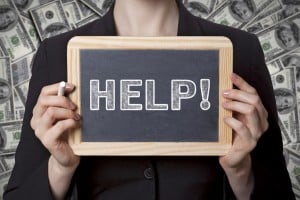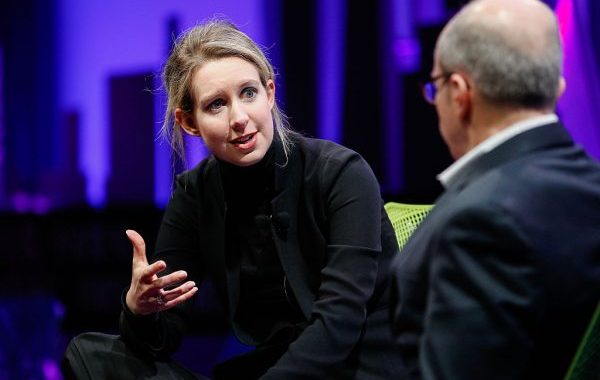The
global
COVID-19
pandemic,
conflict
in
the
Ukraine,
rising
inflation
and
interest
rates,
debt
levels,
and
volatile
food
and
fuel
prices,
among
other
things,
are
creating
acute
macroeconomic
headwinds.
So
it’s
perhaps
no
surprise
that
corporate
desire
for
greater
agility
and
flexibility
in
response
to
geopolitical
instability
is
the
No.
1
factor
considered
to
have
the
greatest
potential
impact
on
investment
and
adoption
of
legal
tech
solutions
today.
This
is
according
to
proprietary
research
we
at
Hence
Technologies,
in
collaboration
with
research
agency
Coleman
Parkes,
conducted
this
year
with
more
than
150
general
counsel,
chief
legal
officers,
and
heads
of
legal
operations.
Notably,
in
this
study,
almost
two-thirds
of
respondents
(64%)
identified
their
company’s
need
to
more
easily
adapt
and
respond
to
today’s
volatile
and
uncertain
economic
and
political
environment
as
one
of
the
top
five
drivers
for
procuring
legal
tech
solutions.
That
this
factor
ranked
the
highest
overall
—
above
using
data
for
decision-making
(57%)
and
cost
savings
(55%)
—
is
particularly
interesting.
Since
this
study
was
conducted
earlier
this
year,
the
world
has
arguably
become
more
uncertain,
and
the
need
for
agility
has
become
even
more
acute.
Geopolitical
Challenges
Set
To
Endure
Corporates,
governments,
and
other
institutions
struggling
to
respond
to
today’s
persistent
headwinds
should
get
used
to
these
conditions.
While
it
may
seem
like
the
acute
factors
—
for
instance,
Russia/Ukraine
—
could
abate,
in
fact
the
tensions
causing
such
disputes
are
structural.
In
a
recent
report
titled
“How
Global
Companies
Can
Manage
Geopolitical
Risk,”
McKinsey
forecast
that
these
challenges
“will
get
worse”
and
that
“in
the
next
two
decades,
competition
for
global
influence
is
likely
to
reach
its
highest
level
since
the
Cold
War,”
citing
the
U.S.
National
Intelligence
Council’s
report
“Global
Trends
2040:
A
More
Contested
World.”
As
the
U.S.
has
retreated
from
the
global
leadership
role
it
held
since
the
end
of
World
War
II,
other
countries
are
filling
in
the
gap.
The
rise
of
China
creates
fault
lines
across
geographies
and
issues
that
companies
once
viewed
as
settled
for
the
time
being
—
for
instance,
the
status
of
Hong
Kong
and
Taiwan.
In
January
2022,
the
Financial
Times
observed
that
“China’s
rise
to
superpower
status”
was
intensifying
“the
urge
in
Washington
to
decouple
from
its
‘strategic
competitor’”
and
that
“in
2022,
the
increasingly
bipolar
world
that
results
from
this
basic
dynamic
is
set
to
cause
a
host
of
geopolitical
headaches
for
smaller
powers
and
multinational
corporations.”
While
there
appears
to
have
been
a
shift
toward
rhetoric
of
coexistence
and
compromise
when
China’s
leader
Xi
Jinping
and
President
Joe
Biden
met
on
the
sidelines
of
the
Group
of
20
summit
in
Bali,
Indonesia,
the
structural
factors
remain
unchanged.
It
is
against
this
backdrop
that
spoilers
like
Russia
attempt
to
make
themselves
relevant
by
striking
out
and
forcing
their
agenda
to
the
top
of
the
news
pages,
not
that
dissimilar
from
North
Korea
testing
nuclear
weapons
within
90
days
of
every
U.S.
election.
These
headaches,
which
knock
on
to
supply
chain
issues
and
sanctions,
are
exactly
the
type
of
shocks
to
corporate
five-year
plans
that
companies
must
navigate
and
ultimately
avoid.
Nurturing
Greater
Supply
Chain
Resilience
—
An
Imperative
For
Corporates
Today
A
key
part
of
the
corporate
effort
to
withstand
today’s
constantly
changing
political
contours
is
investing
in
nurturing
greater
supply
chain
resilience.
The
logistics
“bullwhip
effect,”
which
distorts
upstream
supply
chain
planning
due
to
shifts
in
demand,
was
starkly
evident
during
the
global
COVID-19
pandemic.
Now
corporations
across
many,
if
not
all,
industries
have
faced
similar
supply
chain
challenges
in
the
longer-term
wake
of
Brexit,
protectionist
policy-making,
sustained
saber-rattling
between
the
U.S.
and
China
on
trade,
and
turbulence
from
the
Russia-Ukraine
war.
Resilience
Of
Enterprises’
Legal
Services
Supply
Chains
Mission
Critical
Today
Key
to
embedding
such
supply
chain
resilience
is
how
a
corporation
harnesses
inputs
from
knowledge
providers
such
as
accountants,
public
relations
companies,
recruiters,
and,
perhaps
especially,
lawyers.
The
large
global
law
firms
in
particular
play
a
pivotal
role
given
they
also
advise
governments
and
regulators
worldwide
on
topics
like
the
global
pandemic,
financial
crises,
state-level
sanctions
such
as
those
imposed
against
Russia
and
corporate
reorganizations
that
follow
conflict
escalation
as
seen
in
Ukraine,
energy
market
reforms,
and
how
corporations
navigate
the
challenges,
or
grasp
opportunities
arising
from,
tax
changes
due
to
substantial
fiscal
gaps.
Technology
Enhancing
How
Corporates
Leverage
External
Knowledge
Services
In
today’s
more
digitally
connected
world,
large
enterprises
are
deploying
advanced
technologies
to
more
efficiently
and
effectively
manage
their
supply
chains.
Buyer/supplier
relationships
with
knowledge
providers,
almost
by
definition,
spawn
high
volumes
of
data
and
information.
This,
in
turn,
is
intensifying
demand
within
corporates
for
improvement
in
any
decision-making
that
arises
from
the
services
being
procured
from
law
firms
and,
indeed,
through
the
advisory
services
offered
by
accountancy
firms,
management
consultancies,
recruitment
agencies,
advertising
holding
companies
and
the
like.
Yet
Technology
Is
Also
Presenting
Competitive
And
Cyber
Threats
Of
course,
the
strategic
role
law
firms
play
also
make
them
an
attractive
target.
We
at
Hence
Technologies
authored
an
article
in
this
publication
in
August
2022
highlighting
how
“law
firms
are
finding
themselves
as
unique
nodes
under
attack
in
a
geopolitical
environment
with
cross-cutting
adversarial
intentions,”
further
illustrating
how
fragile
the
legal
services
supply
chain
has
become
in
an
increasingly
adversarial
geopolitical
context
as
well
as
how
important
it
is
that
corporates
ensure
their
relationships
are
as
robust
as
possible.
When
Buying
Services
From
Law
Firms,
Knowledge
Of
Geographical
Markets
Key
Interestingly,
from
the
study
we
conducted
with
the
senior-most
legal
representatives
of
global
enterprise,
the
top-rated
option
when
respondents
were
asked
to
choose
the
“key
areas
of
knowledge
and
understanding
sought
from
external
lawyers,”
89%
rated
“knowledge
of
the
geographical
markets
their
company
(i.e.
the
corporate)
serves”
as
“very/quite
important.”
When
read
casually,
it
might
imply
that
in-house
teams
want
to
work
with
lawyers
who
know
their
geographies
—
this
seems
pretty
basic
and
indeed
might
reduce
itself
to
a
desire
for
attorneys
with
the
right
country
level
credentials.
In
fact,
the
point
is
deeper,
which
is
that
companies
are
looking
for
strategic
legal
partners
who
can
advise
them
on
the
broader
cross-currents
affecting
their
business
context.
It’s
no
surprise,
then,
that
major
law
firms
like
Dentons
have
invested
heavily
in
building
up
geopolitical
offers
to
help
their
customers
see
and
navigate
the
full
picture,
as
we
wrote
about
previously.
This
is
particularly
true
as
the
geopolitical
risks
firms
are
facing
are
increasingly
localized
and
in
far-flung
geographies.
Thus,
it’s
critical
to
be
able
to
map
the
full
footprint
of
an
enterprise’s
legal
providers
in
order
to
understand
if
they
actually
have
these
capabilities.
It
would
be
time-consuming
and
futile
to
search
one
by
one
through
all
publicly
available
data
to
do
so,
and
simply
asking
for
references
isn’t
good
enough
when
the
risks
one
is
facing
are
so
micro
that
others
may
not
have
had
that
experience.
That’s
where
legal
tech
software
can
come
in,
cataloging
everything
that’s
knowable
about
law
firms
and
surfacing
it
in
real-time
for
decision-making.
Importance
Of
Transforming
How
In-House
Legal
Teams
Buy
From
Law
Firms
So
while
corporate
investment
and
adoption
of
legal
tech
solutions
forms
just
part
of
a
corporation’s
implementation
of
wider
digital
transformation
strategies,
legal
tech
solutions
specifically
are
fundamental
to
global
enterprise
embedding
greater
agility,
flexibility,
and
resiliency
into
their
worldwide
operations
as
they
seek
to
better
respond
to
geopolitical
instability.
The
challenges
stemming
from
today’s
flux
in
the
global
political
environment
are
far
from
over
and,
if
this
is
so,
then
now
is
the
time
for
corporate
leaders
to
drive
transformation
in
the
procurement
of
services
from
knowledge
providers
and,
perhaps
especially,
bolstering
how
in-house
legal
departments
buy-in
support
from
external
law
firms
and
lawyers.
 Sean
Sean
West
is
Co-Founder
of Hence
Technologies,
a
software
company
that
transforms
how
enterprises
work
with
external
counsel.
He
was
previously
Global
Deputy
CEO
of
Eurasia
Group,
the
geopolitical
advisory
firm.
He
writes
a
biweekly
column
in
Above
the
Law
on
geopolitics
and
the
practice
of
law.
Boko
Inyundo
is
Director,
Strategic
Relations
at
Hence
Technologies,
a
role
he
took
after
15
years
at
DLA
Piper,
Linklaters
and
Lewis
Silkin.

 Joe
Joe


 Kathryn
Kathryn
 Chris
Chris











